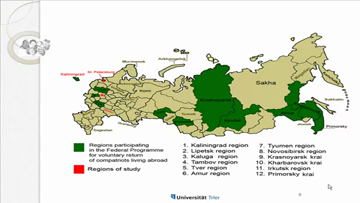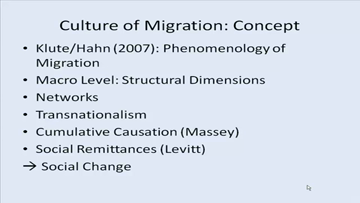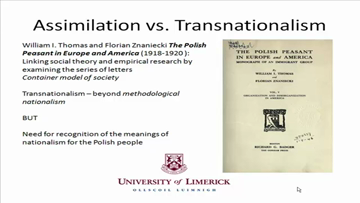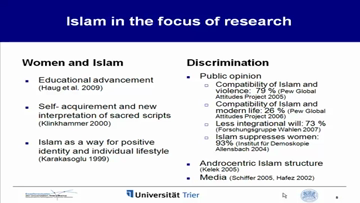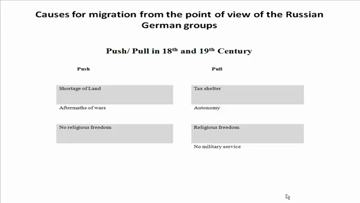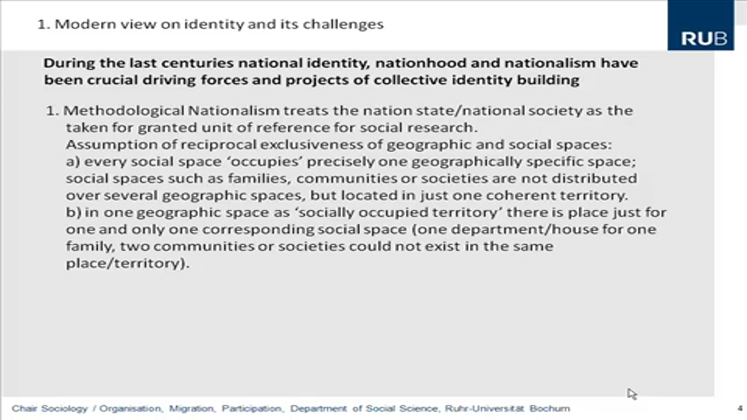Between Ethnicizing and Cosmopolitism
Spaces and Levels of Collective Identity
Migrants and people in motion
at large are challenged by spacial and mental aspects. Ludger Pries talks about the multiple levels and spacial dimensions of the production and re-production process of collective identity based on his research, but also his experiences as fellow researcher abroad. His approach goes far beyond the concept of hopping from one container culture to the other. Instead he conceptualizes identity within the context of ethnicity and internationalisation on the one hand and cosmopolitanism on the other hand.
Ludger Pries is a professor for sociology at the Ruhr-University Bochum. He chairs the Immigration and Ethnic Minorities Section of the German Society for Sociology. He studied sociology and social sciences at the universities of Bochum, Erlangen-Nürnberg and Puebla (Mexico). Since then, research and teaching assignments have taken him to Brazil, Mexico, Spain and the United States. His research focuses on comparative studies in organisational and labour sociology as well as on the sociology of migration and transnationalism. As he especially covers issues concerning transnational migration and social incorporation processes, Ludger Pries' latest publications deal with processes of transnationalism theoretically and empirically (both Wiesbaden 2010).
Keynote - October 15th, 2011
The Resilience of People in Motion
-
54498 Hits
-
|
-
2 Votes
-
|
-
16 Beiträge
Processes of immigration, transmigration, and remigration in the wider Europe today
Europe is a continent shaped by migration. Every year millions of people are migrating into the European Union. Others are emigrating from EU member countries. Many are leaving their homes and are trying to integrate into the host country, while others circulate between their home country and their “new home”, leave the country of entry, returning back to their “country of origin”, or they even migrate on to third countries.
Migration is a complex process with constraints and opportunities. Its flows have created different patterns, regimes and even cultures of migration. It involves voluntary and involuntary aspects, economic and non-economic issues, constructions and reconstructions between physical and symbolic spaces. This stipulates also new ways of theorizing and researching in the field.
Strategies of Survival, Strategies of Resistence
Migrants and migratory groups adopt as well as resist to challenges and expectations by the mobility itself or the receiving society. They perform resilient and innovative strategies of survival.
They are resilient by maintaining their culture(s), system(s) of belief, traditions, way of life etc. Yet, they are innovative being open for change, being transformers, innovators, entrepreneurs themselves. Therefore, adoption, change and/or innovation vs. resistance, continuity and/or resilience have to be seen as part of the migratory agency. The migrants’ culture of resilience, meaning the maintenance of core elements of their livelihood, has to be conceptualized in an ever changing world challenging the integrity and cohesion of any, but especially migratory groups.
The Conference
The aim of the conference is to discuss new theoretical approaches, methodologies and empirical research results on immigration, transmigration and re-migration topics. It focusses on changing European migration regimes and discourses since the fall of the iron curtain until today.
Contact
Prof. Michael Schönhuth
University of Trier
Universitätsring 15
D-54286 Trier
+49-(0)6 51-201-27 10 (Office)
http://transmigration.eu/
Zu
The Resilience of People in Motion
